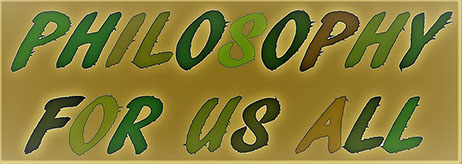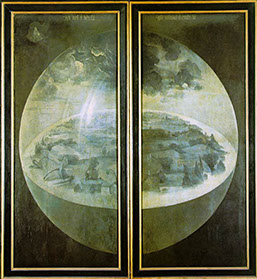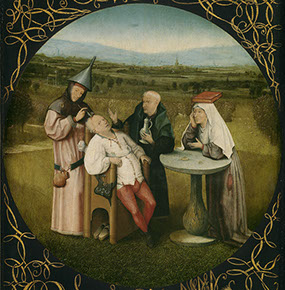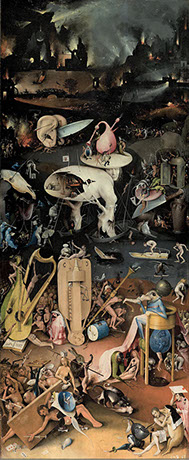palioxis publishing


HOME

Listen to this page
1. Philosophy For Us All.
This is not an esoteric philosophy site. It focuses on the practicalities of human existence. It concerns all people who want a better life for themselves, humanity, and their more extended environment. The creed of this site is that this can only be achieved by engaging PHILOSOPHY FOR US ALL.

This already seems to be the promise of philosophies claiming a capacity of explaining the human condition. Such philosophies come in two principal types. There are spiritual theories that draw their foundations from irrefutable experiential immediacy of their founders, proponents, and followers. And then there are theories with scientific ambition that insist on their accuracy by objective methods of factual proof and logical deduction. Even if such theories do not reserve insight into the entirety of the human condition, if they are true, as they assert, that truth must apply to everybody within their claimed scope of insight. And so must the consequences they suggest based on such insight. Many philosophies have made such declarations and tried to raise corresponding enthusiasm for the clarity they alleged to have brought to human affairs. And many have failed to convince sizeable followings, let alone their intended audiences. Their reach has been limited by competing philosophies or the intransigence of their marks. But even upon their acceptance, their influence has regularly waned or in notable number eventually been repudiated. A poor track record for theories claiming truth.
This record did not come about for lack of time, determination, or opportunity. Philosophy has been around for millennia and has been endlessly trying to sell us on ways to think, feel, and act. In many instances, its variants were imposed by occupying forces or governance from within a society. In other instances, it found willing acceptance without much critical consideration, and thus understanding. An uneducated populace looking for guidance, protection, and mental escape in an uncertain and hostile world has for extensive stretches of human history been ready to invest trust. Either way, philosophy has habitually been used to assert, convey, project, and secure power and to control and manipulate those subjected to it.
 But was it really ever offered or promised in a true sense of "wanting to know" as its translation implies? Were we educated, permitted, or encouraged to question established philosophies and freely make up our own minds about our ways of life? When we look closely to answer these questions, we find mostly disappointment. We find that PHILOSOPHY FOR US ALL was a false advertisement for attempts to subject us to somebody else's philosophy. As a consequence, the maxim has taken on the semblance of a worn-out slogan, a faded sign.
But was it really ever offered or promised in a true sense of "wanting to know" as its translation implies? Were we educated, permitted, or encouraged to question established philosophies and freely make up our own minds about our ways of life? When we look closely to answer these questions, we find mostly disappointment. We find that PHILOSOPHY FOR US ALL was a false advertisement for attempts to subject us to somebody else's philosophy. As a consequence, the maxim has taken on the semblance of a worn-out slogan, a faded sign.
Philosophy of the human condition can only be useful if it focuses on us all and our concerns. This will require in part large-scale, common efforts. But they can only sustainably grow from our consideration and realization of what our circumstances, needs, and wishes are and how we want to live. Apparently, we each have to “want to know” how to live our life so we can replace trusting ignorance, fearful obedience, resentful suspicion, and resignation with the clarity and instructiveness of knowledge. This prospect places philosophy into its proper role, centered in our mind and existence, which we individually and as a species require to master our challenges. Philosophy is then for all of us after all - just in a different sense. It is time then to pull this tarnished old placard of PHILOSOPHY FOR US ALL from storage, clean it up, and put it to genuine use in our service.
2. Waking Our Humanity.

The issues confronting us individually and in a larger context cry out to be addressed in a thoughtful manner. Yet the knowledge about what can be done to make this a better world remains underdeveloped, giving room to misguided and misguiding forces. Most of human history, we have been held back, tortured, and contorted by misleading philosophies and the abuse of philosophies for power-related purposes, and underlying tribal perversions, hierarchic instincts, superstitions, lack of education, deprivation, confusion, and plain human weakness and their consequences.
So where does this leave us and how do we proceed? With all the bad wrought by philosophy, there is also a history of inspiration on which we can draw. Humanity's yearning and struggle for a better life have continued throughout the ages despite sometimes monumental impediments. An indomitable spirit persists in attempts to free itself and rise to build and fulfill the promise of human potential for thriving. Overall, progress has been slow, uneven, and marred by setbacks. We may detect that humankind and our life circumstances are developing into the right direction. But we are also put on credible notice by our experiences and history that this may not succeed if we do not personify, defend, and actively advance this spirit.

 The question we must ask ourselves is whether we take up this challenge and conduct it in a proper manner. Looking at history, prior generations have found this difficult. At times, it seemed the world began to be transformed by movements that focused on critical thinking. Humanity seemed to free itself from external and self-imposed delusion, suppression, and depression and reach for higher levels of conscience.
The question we must ask ourselves is whether we take up this challenge and conduct it in a proper manner. Looking at history, prior generations have found this difficult. At times, it seemed the world began to be transformed by movements that focused on critical thinking. Humanity seemed to free itself from external and self-imposed delusion, suppression, and depression and reach for higher levels of conscience.
But many of these movements were too tentative, incomplete, or divided among themselves, or did not receive sufficient support. More than that, many were inherently flawed, or their fledging phases were taken over by opportunists who perverted and used them to promote themselves, their philosophies, or ill proclivities. Movements to become free from current oppression often resulted in new oppression and derailment of the human cause. As reactions in opposition to previous outrages, they often swung to compensatory and punitive extremes. Over time, such extremes settled into more moderate conditions. And traditional philosophies have come around as well. Aware of this spirit of human liberation and threats from its suppression, they frequently tried to incorporate it and some of its manifestations into their constructs. Through these processes, advancements were made in the acknowledgment, protection, and support of human needs and corresponding rights. However, many systems still fall short of fully embracing them as their fundamental principles.
And, as important as these fundamental truths are, they are far from defining the entirety of the human spirit, but rather describe, as their designation indicates, its basis. An equally important issue is how our individual actions help secure these basics before and after they are secured, and how we live our life beyond these basics. The related experiences, considerations, and activities that make our existence ours are up to us.
3. Missed Opportunities.
What are we doing with this responsibility? Some of us replace the discredited guidance by traditional philosophies with shortsighted, poorly considered paths to fill the lack of guidance or we choose to ride along with others to see where it takes us. Or, in an inept search for the purpose and fulfillment philosophy promised and betrayed, we resign to rudderless pursuits that strike our fancy without a deeper plan. But most of us who are benefiting from a relatively stable foundation have settled into a life of consumption and fleeting material benefits this success enabled without concern for the consequences and without much understanding or appreciation of what made the advancement possible - or the further advancement it could enable. And those of us who have not secured such foundations largely envy those who have succeeded for such a lifestyle and try to reach or emulate it. So most of us act without a well-considered philosophy. We tend to act opportunistically according to what we deem beneficial without giving it much critical thought. We blend into cultural, economic, and technological dictates and conveniences to make the best of our situation. Only, our lack of involvement on our behalf keeps us far short of making the best of it.

 While our minds were adrift, we and the forces to which we have ceded our sovereignty have been creating and permitting circumstances that threaten our well-being and survival individually and as a species.
While our minds were adrift, we and the forces to which we have ceded our sovereignty have been creating and permitting circumstances that threaten our well-being and survival individually and as a species.
These degradations and predations are known or could be known without much effort. But their number, complexity, size, and frightful prospects - and convenience - make us ignore them and trust everything will be alright against reasonable indication. We want to believe these threats do not exist, will vanish by themselves, or that someone will make them go away. This may eventually lead us again to trust others to intercede on our behalf with all the additional risk this carries. Yet, we already are unwittingly entering that risk. Our apathy leads us to not care much what happens in the long run or who leads us into it. We let others manage, or not manage, our world, or use it for their purposes, while we bury our heads and hearts in private lives whose limited ambitions focus on more immediate concerns and reaches. We keep busy trying to edge out and master an existence within the circumstances we endow or allow.
As a consequence of our own shortsighted behavior and the behavior of the powers to which we abdicated, environmental and economic damage, societal decay, suppression, unrest, war, and individual suffering increase. But rather than addressing this growing menace, we double down with diversions, willful ignorance, and false hope of salvation. We keep ignoring that our and humanity's fate cannot improve, and, if we continue in our unconsidered behavior, is likely to deteriorate, until we use our minds and hearts to their given capacity and focus them on identifying and addressing our purposes and challenges.
Possibly, we only are ready to expand our mind after the refusal of our responsibilities reaches extremely uncomfortable levels. But such levels are sooner or later certain to result from our derelictions, if not for us then for future generations. At that time, saving _-_the_conjurer_(mus%c3%a9e_saint-germain-en-laye)%20cropped311x241.jpg?crc=203740592) ourselves, them, and humankind may be much more difficult, less effective, or impossible. And we will have wasted precious time with unnecessary pain caused by our delay.
ourselves, them, and humankind may be much more difficult, less effective, or impossible. And we will have wasted precious time with unnecessary pain caused by our delay.
We may thus decide to look for solutions to our troubles. But how do we search and how will we identify and acquire the competence of a proposed solution? Although we may take note of what others are thinking and doing, or what has been tried before, in the end, we will have to understand and confirm whether such ideas work for us. And likely many objectives and their pursuits will require us to devise personalized solutions of our own. These tasks require that we develop our personal philosophical capabilities.
To the extent advice can be legitimately given for the development of these capabilities, and suggestions can be legitimately made for consideration in application of these capabilities, philosophical authors are tasked to give assistance.
4. The Mission of Palioxis Publishing.
242x265.jpg?crc=303755546)
The mission of Palioxis Publishing is to help in both regards. Its name derives from an ancient Greek word that stands for the concept of turning around in battle after losing courage and fleeing to face the challenge and push back. The concept was an impersonation of Athena, the Greek goddess of war, who was also the goddess of practical wisdom. She was depicted on shields rallying troops in retreat. "Palioxis" in the Palioxis Publishing name then stands for practical wisdom fighting back against error and ignorance. The Palioxis Publishing logo constitutes a visual representation of this idea.
The foundational work in Palioxis's mission has been written by me under the title Philosophy of Happiness. It is focused on enabling readers to develop their philosophical capabilities and put them to constructive use. It is also meant to support them in critically evaluating other philosophies and pursuits. More information about this work is available on its dedicated website, www.philosophyofhappiness.com. However, due to the vast range of subjects in which human life can benefit from support by philosophy and other sciences, this book can only briefly address many areas that require, or can benefit from, further research and dissemination of results.

Palioxis promotes the writing and publication of works in these areas that can improve the human condition. In this effort, Palioxis Publishing breaks the mold of the traditional role and profit motives of a publisher. Instead, it seeks to advance the independent competence of authors and their work's purpose of assisting the public. Further details of how Palioxis Publishing can support authors are described in other parts of this website, particularly the Services section.
5. Site Orientation.
This website is divided into nine sections. Beyond this introductory Home page, the Philosophy section describes the underlying philosophy of Palioxis Publishing's efforts and argues in favor of reorganizing philosophy to advance scientific and practical insights and implement the idea of "PHILOSOPHY FOR US ALL." The Publications section features the publications already issued by Palioxis Publishing. The Services section provides information about the services of Palioxis Publishing to writers of eligible works. The Submittal section informs authors about the submittal process and contains relevant links. The Contact section contains a form to contact Palioxis Publishing in matters not related to submittals for consultation or publishing. The Login section pertains to access by existing customers of Palioxis Publishing only. Finally, the Terms of Use spell out the underlying legal conditions for access and use of this website and related materials.
6. Share The Idea.
 I hope you find this site and the publications featured on it stimulating and helpful. Palioxis Publishing is an independent publisher. The success of its mission depends in large part on referrals by individuals like you. So, if you like this site please tell others about it. Sharing buttons are located at the top of each page.
I hope you find this site and the publications featured on it stimulating and helpful. Palioxis Publishing is an independent publisher. The success of its mission depends in large part on referrals by individuals like you. So, if you like this site please tell others about it. Sharing buttons are located at the top of each page.
Thank you and best wishes,
Martin Janello
© 2013-2026 BY MARTIN JANELLO
